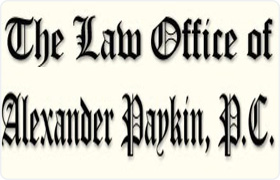WORK MADE FOR HIRE
A work created by an employee within the scope of employment or a work commissioned an author under contract. With a work for hire, the author and copyright own...
(more...)A work created by an employee within the scope of employment or a work commissioned an author under contract. With a work for hire, the author and copyright owner of a work is the person who pays for it, not the person who creates it. The premise of this principle is that a business that authorizes and pays for a work owns the rights to the work. There are two distinct ways that a work will be classified as 'made for hire.'the work is created by an employee within the scope of employment; or the work is commissioned, is the subject of a written agreement, and falls within a special group of categories (a contribution to a collective work, a part of a motion picture or other audiovisual work, a translation, a supplementary work, a compilation, an atlas, an instructional text, a test, or as answer material for a test). The work made for hire status of a work affects the length of copyright protection and termination rights.
 x
x

 Alexander Paykin New York, NY
Alexander Paykin New York, NY AboutThe Law Office of Alexander Paykin, P.C.
AboutThe Law Office of Alexander Paykin, P.C. Practice AreasSpecializations
Practice AreasSpecializations
